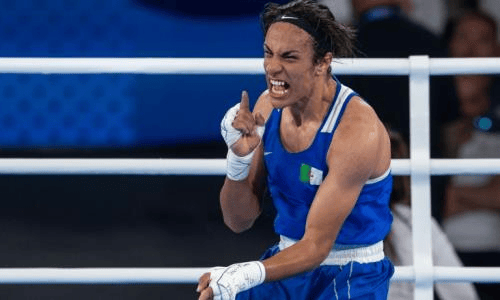Controversy Erupts Over Olympic Boxing Champion's Gender Identity
A heated debate sparks as Olympic boxing champion faces scrutiny over gender identity. Explore the ongoing discussions shaping the future of sports inclusion.


Introduction to the Scandal
The world of sports often finds itself embroiled in controversy, with the latest incident revolving around Algerian boxer Iman Khelif, who has recently been accused of being a biological male despite competing in the women's category at the Olympic Games in Paris. The implications of this revelation have sparked a heated discussion regarding gender identity in sports, prompting calls for the champion to be stripped of her gold medal.
The Medical Findings Underscoring the Allegations
Reports surfaced from the publication RedUXX, citing excerpts from a medical conclusion that suggest Khelif possesses several male biological characteristics. Specifically, the documents indicate that Khelif does not have a uterus and exhibits other male sexual traits. Furthermore, hormone tests reportedly reveal testosterone levels consistent with those typically found in males.
This debacle raises significant ethical questions regarding the inclusion of transgender individuals in competitive sports. As highlighted by famous British journalist Piers Morgan, the argument centers around the fairness of allowing an athlete with male biological traits to compete against women. This scenario shows how complex gender identity and eligibility criteria can become, drawing public attention and scrutiny.
Reactions from the Public and Experts
The reaction to the allegations has been mixed, with some supporters rallying behind Khelif, emphasizing the importance of inclusion and representation of transgender athletes in all sports disciplines. Conversely, critics argue that biological advantage in sports should always be examined closely, claiming that allowing Khelif to retain her gold medal undermines the integrity of women's sports.
Moreover, experts in sports ethics are weighing in on the issue, debating whether regulations surrounding gender verification need to be re-evaluated. The situation has prompted various sports organizations to revisit their policies to ensure a fair playing field while advocating for diversity in sports. With the Tokyo Olympic Games still fresh in public memory, this incident serves to remind stakeholders about the ongoing need for clarity and fairness in athletic competitions.
Conclusion: A Call for Reflection and Change
This unfolding situation puts a spotlight on the complexities of gender identity in competitive sports. It calls for a thorough examination of the rules that govern eligibility and participation in women’s categories. As discussions continue and public opinion oscillates, one thing remains clear: sports organizations must engage in open dialogue to foster understanding and streamline policies to support all athletes.
Whether Iman Khelif will keep her gold medal or face disqualification remains to be seen, but the debate over gender identity in sports is far from over. It's an ongoing conversation that requires sensitivity, fairness, and a commitment to equality for all athletes involved.
